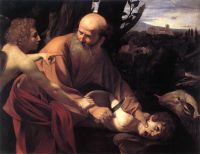INTRODUCTION: ON COVENANT THEOLOGY
J. I. Packer
I
The name of Herman Wits (Witsius, 1636-1708) has been unjustly forgotten. He was a masterful Dutch Reformed theologian, learned, wise, mighty in the Scriptures, practical and “experimental” (to use the Puritan label for that which furthers heart-religion). On paper he was calm, judicious, systematic, clear and free from personal oddities and animosities. He was a man whose work stands comparison for substance and thrust with that of his younger British contemporary John Owen, and this writer, for one, knows no praise higher than that! To Witsius it was given, in the treatise here reprinted, to integrate and adjudicate explorations of covenant theology carried out by a long line of theological giants stretching back over more than century and a half to the earliest days of the Reformation. On this major matter Witsius’s work has landmark status as summing up a whole era, which is why it is appropriate to reprint it today. However, in modern Christendom covenant theology has been unjustly forgotten, just as Witsius himself has, and it will not therefore be amiss to spend a little time reintroducing it, in order to prepare readers’ minds for what is to come.

 When we read Scripture and particularly the Old Testament, it is so easy to automatically view those heroes of the faith, those glowing golden embossed characters we have all read about as kids as if they did no wrong. Sadly, a lot of times, we carry those portrayals with us into adulthood. Sure they made “mistakes,” the thinking goes, but they are people who kept their act together 99% of the time and are worthy of imitation as a result. And unfortunately, this is where we think the teaching stops.
When we read Scripture and particularly the Old Testament, it is so easy to automatically view those heroes of the faith, those glowing golden embossed characters we have all read about as kids as if they did no wrong. Sadly, a lot of times, we carry those portrayals with us into adulthood. Sure they made “mistakes,” the thinking goes, but they are people who kept their act together 99% of the time and are worthy of imitation as a result. And unfortunately, this is where we think the teaching stops. After these things God tested Abraham and said to him, “Abraham!” And he said, “Here am I.” 2 He said, “Take your son, your only son Isaac, whom you love, and go to the land of Moriah, and offer him there as a burnt offering on one of the mountains of which I shall tell you.” 3 So Abraham rose early in the morning, saddled his donkey, and took two of his young men with him, and his son Isaac. And he cut the wood for the burnt offering and arose and went to the place of which God had told him. 4 On the third day Abraham lifted up his eyes and saw the place from afar. 5 Then Abraham said to his young men, “Stay here with the donkey; I and the boy will go over there and worship and come again to you.” 6 And Abraham took the wood of the burnt offering and laid it on Isaac his son. And he took in his hand the fire and the knife. So they went both of them together. 7 And Isaac said to his father Abraham, “My father!” And he said, “Here am I, my son.” He said, “Behold, the fire and the wood, but where is the lamb for a burnt offering?” 8 Abraham said, “God will provide for himself the lamb for a burnt offering, my son.” So they went both of them together.
After these things God tested Abraham and said to him, “Abraham!” And he said, “Here am I.” 2 He said, “Take your son, your only son Isaac, whom you love, and go to the land of Moriah, and offer him there as a burnt offering on one of the mountains of which I shall tell you.” 3 So Abraham rose early in the morning, saddled his donkey, and took two of his young men with him, and his son Isaac. And he cut the wood for the burnt offering and arose and went to the place of which God had told him. 4 On the third day Abraham lifted up his eyes and saw the place from afar. 5 Then Abraham said to his young men, “Stay here with the donkey; I and the boy will go over there and worship and come again to you.” 6 And Abraham took the wood of the burnt offering and laid it on Isaac his son. And he took in his hand the fire and the knife. So they went both of them together. 7 And Isaac said to his father Abraham, “My father!” And he said, “Here am I, my son.” He said, “Behold, the fire and the wood, but where is the lamb for a burnt offering?” 8 Abraham said, “God will provide for himself the lamb for a burnt offering, my son.” So they went both of them together.